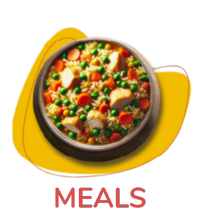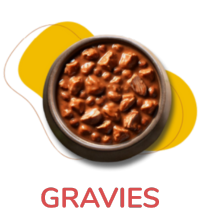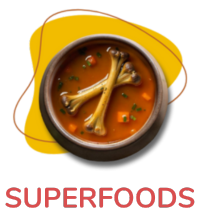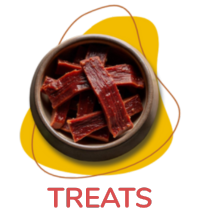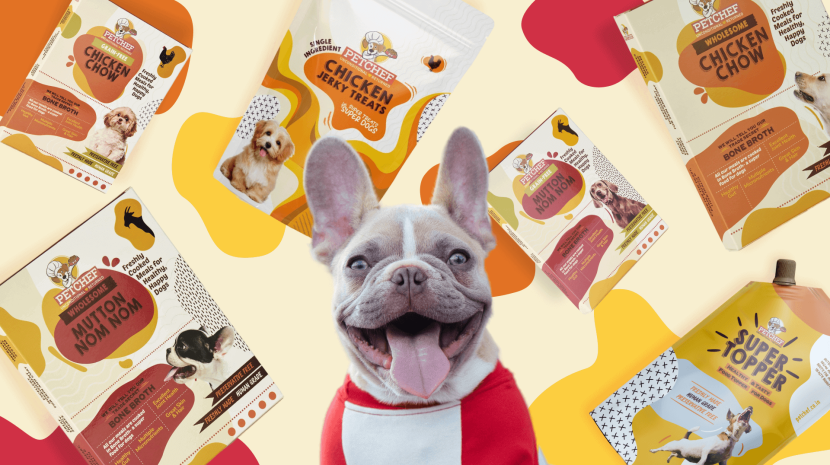We get it: it can be very hard to resist your pet’s adorable face when they are begging you to let them take a bite off your food. Naturally curious, dogs are driven by their sense of smell and tend to use their mouth to explore their surroundings to the fullest. This makes the food on your plate extremely tempting to them. As a doting pet parent, you too, wish to share the many delicious foods you eat with your furry friend. But whereas eating them may be perfectly normal for you, the same doesn’t hold for your doggy: due to the difference in metabolism between us and our canine friends, there are certain human foods that are suitable for dogs.
Let us get to know some of these ‘toxic treats’ better.
- Chocolate: Cocoa, the substance out of which chocolate is made, contains two compounds: caffeine and theobromine, both of which are hard for your doggo to digest. Eating chocolate (even in small amounts) can lead to diarrhoea, vomiting, an elevated heart-rate, increase in the urge to pee and dehydration. The darker the chocolate, the more dangerous it is. Even giving your pup unsweetened baking chocolate isn’t a good idea. Your pet is also better off without being exposed to other caffeinated products like tea, coffee and soft/energy drinks.
- Onions, Garlic: Cooked or raw, powdered or dehydrated, all types of onions and garlic are a no-no for dogs. They can cause gastrointestinal irritation and kill off your pooch’s precious red blood cells, leading to anaemia. The symptoms don’t appear immediately, but weakness, vomiting and breathing trouble are some of the early signs.
- Dairy Products: On a hot day, your pet’s pretty eyes may melt your heart into letting it lick off some of that ice cream. But that wouldn’t be such a cool thing as milk and milk-based items can cause digestive problems and diarrhoea in dogs, while also setting off allergies that will make them itchy. Dogs are lactose intolerant as they lack the enzymes required to break down the naturally occurring sugar in milk. But certain dogs can handle other milk-made stuff like yoghurt and cheese which are easier to digest. Consulting the vet is the best way to know what works for your dog and what is to be avoided.
- Alcohol & Yeast Dough: We may use alcohol to raise a toast, but for our four-legged companions, it only spells bad news. Even when given in small amounts, alcohol has a big impact. And the smaller your pet is, the worse the damage is. Alcohol affects dogs’ brain and liver the same way it does in us. These changes, which usually develop within an hour of consumption, include loss of muscle coordination, diarrhoea, vomiting, tiredness, poor breathing, etc. Even dough with yeast will produce the same effects as alcohol on your doggy: yeast is added to dough in order to make it rise. The same process will happen inside your doggy’s tummy as yeast cells ferment and simultaneously produce alcohol. Hence, your pet is better off without being fed items made of yeast dough like breads, biscuits, sponge cakes, etc.
- Dry Fruits & Nuts: While these foods are amongst the healthiest things we eat, the same doesn’t hold true for our furry friends. This is because they are unable to digest dry fruits like almonds and cashew nuts that are rich in protein and fats. Stomach pain, weight gain and pancreatitis are some of the effects. Almonds and walnuts, in particular, pose a choking hazard.
- Grapes and Raisins: While most fruits will make quite a tasty treat for your pup, this is not the case with grapes and dried grapes i.e. raisins. Just what is toxic about grapes is yet to be discovered, but it is a well-known fact that they can lead to sudden and acute kidney failure in dogs. Continuous vomiting presents as an early sign, followed by fatigue and depression. It is also important to remember that your furry friend may be exposed to raisins not only in the raw but also cooked form i.e. in baked goods like cakes, cookies and snack bars.
- Xylitol: This is a sugar alcohol used in foods like candy, chewing gum and low-fat, sugar-free, products like cakes, energy drinks and even some kinds of peanut butter. Xylitol acts by releasing insulin inside the body which will cause your pooch’s sugars to plummet dangerously low. Signs that may develop (within thirty minutes of intake) include: muscle tremors, weakness, difficulty making movement, etc.
- Salt: While salt forms an essential part of the canine diet, giving them too much of it can make your doggo extremely thirsty and prone to excessive urination. Salt toxicity can also lead to GI tract troubles like diarrhoea and vomiting. Salt is the main ingredient of most human food, including fried and fatty food like pizza and chips, all of which can hurt your doggy.
- Avocados: Every part of this fruit poses a danger to your doggy: the flesh, pit, leaves and the bark as they all contain a substance called persin which can cause fluid to build-up in the lungs and around the vital organs. You also want to protect your pooch from the possibility of swallowing an avocado pit that will lead to choking.
- Raw Eggs, Meat and Fish: All these foods, while being extremely healthy, should never be fed to your pet in their uncooked form, as they all carry various bacteria that can induce food poisoning. Fish like salmon or trout can lead to what’s called ‘fish disease’ and those raw eggs may be home to E-coli and/or salmonella. In case of exposure, symptoms may include fever, vomiting, enlarged lymph nodes, etc.
- Fruit Seeds: The seeds of fruits like watermelons, apples, plums, peaches, cherries, etc contain a substance called amygdalin which your pup’s body will convert into cyanide. Cyanide poisoning can prevent cells from properly utilising oxygen, thus disrupting all the vital processes in the body. Even the bigger-sized seeds of fruits like peaches and plums present a choking hazard. If swallowed, they can lead to intestinal blockage. Weakness, confusion, etc. are some of the side effects that can develop within minutes of intake.
These are only some (very common) foods that will prove dangerous for your doggy, and the list is far from complete. Immediately consult the vet if your pooch shows any symptoms you think may have been brought on by food toxicity. However, with PetChef’s food, you need not worry about facing such an unpleasant situation. Be it our Meals (of six different varieties), the equally healthy snack, Chicken Jerky Treat, the 24-Hour Bone Broth or even the Supper Topper (for those who prefer home-cooked food), PetChef prioritises the safety and health of your doggy in everything we make. So rest assured that we will keep such hazardous foods far from our kitchen. Instead, PetChef will take care of your doggo’s dietary needs in the most optimal way possible, helping your doggy maintain not only good health, but also great spirits as they both go hand in hand.

